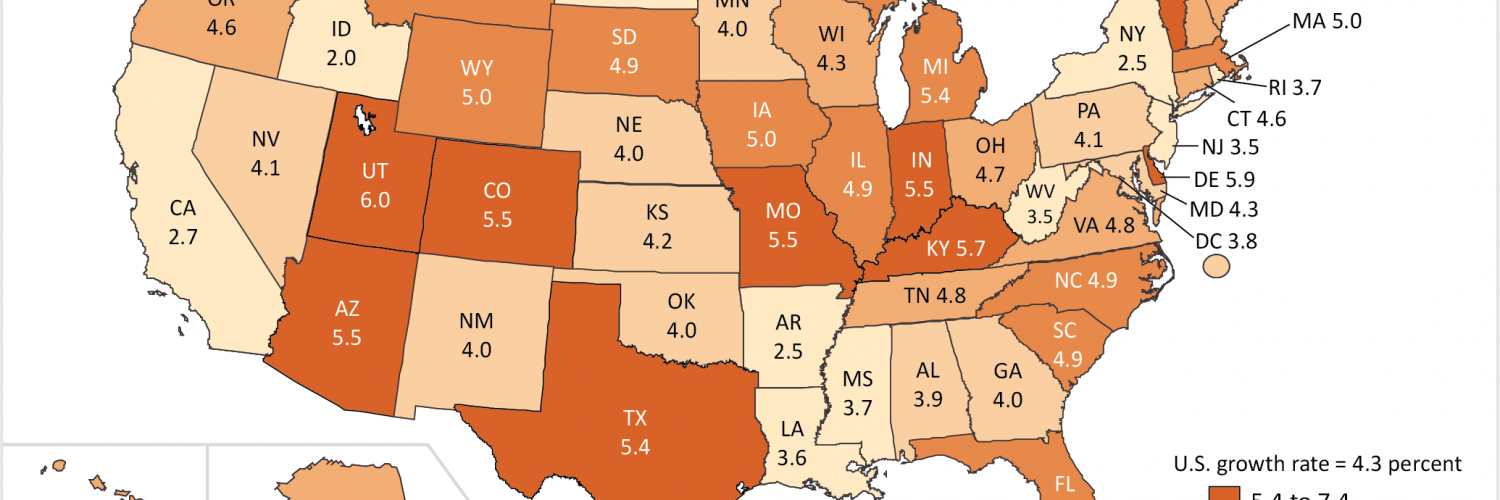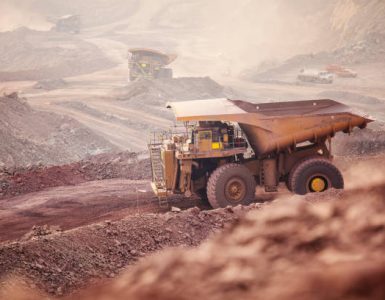Arizona had one of the highest national increases in personal income for the first quarter of 2018. The state saw personal income rise 5.5 percent, compared to the national rate of 4.3 percent, according to the U.S. Bureau of Economic Analysis.
Only three other states had higher increases: Washington (7.4 percent), Utah (6.0 percent) and Kentucky (5.7 percent). Arizona tied with Colorado for fourth in the nation.
The metric includes all components of personal income—earnings, property income, investment income and transfer receipts. In Arizona, wages and earnings were up 4.91 percent for the quarter, compared to 3.72 percent for the national average. The state ranked 7th in wage growth compared to 2017.
Advanced industries—manufacturing, healthcare and life-sciences, education, technology, and advanced business and financial services—accounted for 61 percent of the increase in wages during the quarter. Real estate, construction, and retail, the pre-recession economic drivers for Arizona, added only 24 percent to the wage hikes. The balance of the increase came from tourism and government wages.
Arizona economic developers have focused on attracting and growing these sectors because the jobs are more recession-resistant, pay higher than the state average wage, and provide career track opportunities for workers. It has taken a decade, but month-after-month employment and wage data are showing a dramatic pivot in the Arizona economy.
While wages statewide didn’t grow as fast as the Phoenix metro, which at 7.8 percent was BEA’s fastest-growing metro in wage increases, the numbers carried forward the trend of the state’s economic pivot to production employment driving the economy.
The high wage offerings also appear to be driving the increased migration to Arizona and Phoenix. For 2017, the U.S. Census Bureau said that Phoenix was tied with San Antonio, Texas, at 60 for the average number of people moving into the city every day.
The wage trends match the state’s shift in employment. In May 2018, more than 60 percent of the workforce had jobs in advanced industries. This compares with less than half the workforce in those fields in 2007, the year of highest employment prior to the Great Recession.
The economic pivot represents an effort started during the recession by a coalition of Valley mayors, and moved to the state policy level by Gov. Doug Ducey. Based on U.S. Bureau of Labor Statistics workforce data from 2007 and 2017, no other state so dramatically shifted the workforce base of its economy during the decade.
“This sort of upward trajectory on personal income is really encouraging,” Arizona Chamber of Commerce and Industry spokesperson Garrick Taylor said. “It demonstrates that Arizona is doing a good job attracting the sort of quality, high-paying jobs that states around the country compete hard for. It shows that our state can go toe-to-toe with anyone.”
Arizona’s strengths have come with growth in advanced business services—financial services and technology—to the point that BBC News reported the Phoenix metro ranks third in the number of financial service and technology workers, and will surpass second-ranked Wall Street by 2020. Dallas, Texas, has the most financial services and technology employees in the U.S. During 2017, finserve and fintech businesses hired more new workers than any other metro in the U.S., including Wall Street.
Manufacturing in the state has continued to outpace the nation, increasing workforce for 14 consecutive months as of May, 2018, and upping the employment numbers in 17 of the last 19 months.
The construction sector is relishing its new role as an industry serving the Arizona economic growth, as opposed to driving it, as was the case prior to 2007. However, the construction workforce is still more than 60,000 fewer in 2018 than it was in 2007.
The Valley is becoming a globally-recognized center of bio- and life-sciences discovery. In the first quarter, more than 9,400 scientists, doctors and researchers held jobs on the Downtown Phoenix Biomedical Campus.
















Add comment